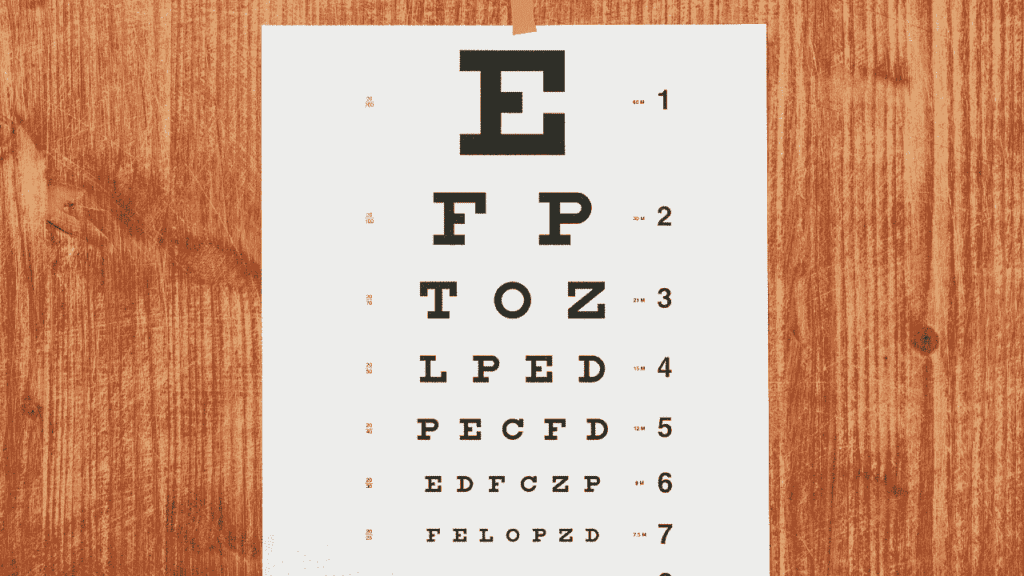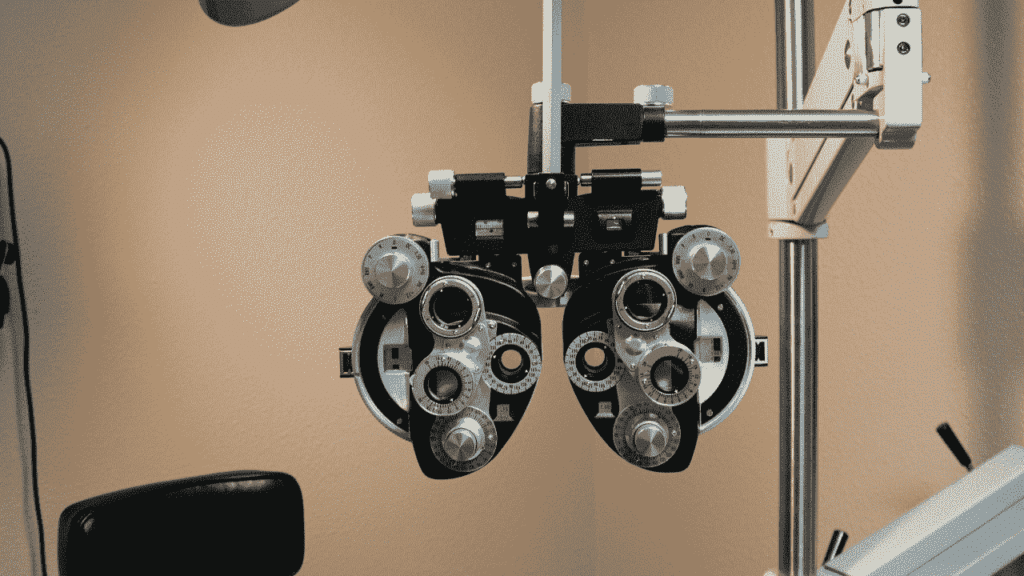1. Introduction to BS Optometry in Pakistan
In today’s world, where digital screens and an aging population are contributing to rising eye health concerns, the field of eye care is gaining significant prominence in Pakistan. Eye care professionals, equipped with a BS Optometry degree, play a crucial role in safeguarding vision and ensuring optimal eye health. If you’ve ever wondered about pursuing a career in this field in Pakistan, or are simply curious about what it entails, you’re in the right place. This article will delve into the world of BS Optometry, exploring its career potential, salary expectations, top universities, and the future of eye care professionals in Pakistan.
Table of Contents
2. What is BS Optometry?
BS Optometry is a four-year undergraduate professional degree program specializing in eye care and vision health. Graduates of this program are not medical doctors, but they are highly trained healthcare professionals who are experts in diagnosing and managing a wide range of eye conditions. They conduct eye exams, prescribe corrective lenses, and detect early signs of diseases like glaucoma and cataracts.

The BS Optometry program equips students with a deep understanding of ocular anatomy, physiology, optics, and various eye diseases. It includes both theoretical coursework and extensive hands-on clinical training, ensuring graduates are well-prepared for real-world practice.
3. Is a Career in Optometry a Good Choice in Pakistan?
The answer is a resounding yes! A career in optometry in Pakistan is considered a promising career path for several compelling reasons:
- Job Security: The demand for eye care professionals is steadily increasing in Pakistan due to the growing population and rising prevalence of eye-related problems. This translates into a high level of job security for graduates.
- Attractive Salaries: Eye care professionals in Pakistan earn competitive salaries, with the potential to increase their income significantly with experience and specialization.
- Fulfilling Work: These professionals make a real difference in people’s lives by preserving their vision and improving their quality of life.
- Growing Field: With advancements in technology and increasing awareness about eye health, the field is constantly evolving, offering numerous opportunities for professional growth and development.
4. Difference Between BS Optometry and BSc Optometry
While both BS Optometry and BSc Optometry focus on eye care, there is a fundamental difference between the two. BS Optometry is a professional degree that focuses on clinical practice and prepares students to become licensed optometrists. BSc Optometry, on the other hand, is a more theoretical degree that emphasizes the scientific aspects of vision and eye health.
In Pakistan, BS Optometry is the preferred qualification for those aspiring to become practicing optometrists.
5. Merit and Admission Requirements for BS Optometry in Pakistan
Admission to BS Optometry programs in Pakistan is typically based on merit, determined by the student’s performance in their intermediate or equivalent examinations, often with a focus on science subjects. Some universities may also require students to appear for an entrance exam, such as the MDCAT (Medical & Dental College Admission Test).
The specific merit requirements and admission criteria can vary between universities. It’s essential to check the individual websites of universities offering BS Optometry programs for detailed information and admission timelines.
6. Top Universities Offering BS Optometry in Pakistan
Several esteemed universities in Pakistan offer BS Optometry programs. Some of the top institutions include:
- Superior University, Lahore: Superior University is known for its comprehensive BS Optometry program, which combines rigorous academic coursework with extensive clinical training. The university boasts state-of-the-art facilities and experienced faculty, providing students with a solid foundation in the field.
- The University of Faisalabad (TUF): TUF offers a well-structured program that emphasizes both theoretical knowledge and practical skills. The university’s strong focus on research and innovation ensures that students stay abreast of the latest advancements in eye care.
- Other Notable Universities: Other universities offering relevant programs in Pakistan include the University of Lahore, King Edward Medical University, and the Institute of Ophthalmology & Allied Vision Sciences.
7. Fee Structure of BS Optometry in Pakistan
The fee structure for BS Optometry programs in Pakistan varies depending on the university, its location, and whether it is a public or private institution. Typically, government-funded universities offer more affordable tuition rates than their privately-funded counterparts.

It’s recommended to contact the admissions offices of the universities you’re interested in to get the most up-to-date information on their fee structures. Many universities also offer scholarships and financial aid programs to deserving students.
8. Subjects and Curriculum of BS Optometry
The BS Optometry curriculum covers a wide range of subjects essential for understanding the complexities of the eye and vision health. Some of the core subjects include:
- Anatomy: Study of the structure of the human eye and its surrounding tissues.
- Physiology: Understanding how the eye and visual system function.
- Ocular Diseases: In-depth study of various eye diseases, their diagnosis, and management.
- Optics: Principles of light and its interaction with the eye.
- Clinical Training: Practical training in conducting eye exams, prescribing corrective lenses, and managing patients with vision problems.
The program also includes practical training and internships, where students gain hands-on experience in various clinical settings.
9. Job Opportunities After BS Optometry in Pakistan
BS Optometry graduates have a plethora of job opportunities in Pakistan, including:
- Clinical Optometrist: Working in hospitals, private clinics, or optical stores, conducting eye exams, diagnosing eye conditions, and prescribing corrective lenses.
- Vision Therapy Specialist: Helping patients improve their visual skills and overcome visual problems through specialized exercises and techniques.
- Research Optometrist: Contributing to advancements in eye care by conducting research and clinical trials on new diagnostic tools, treatments, and technologies.
- Lecturer/Professor: Sharing their knowledge and expertise by teaching at universities or colleges.
10. Salary of Eye Care Professionals in Pakistan
The salary of eye care professionals in Pakistan varies depending on factors such as experience, qualifications, location, and the type of employer (public vs. private).
- Starting Salary: Fresh graduates can expect a starting salary in the range of PKR 30,000 to PKR 50,000 per month.
- Mid-Level Salary: With a few years of experience, professionals can earn between PKR 50,000 to PKR 80,000 per month.
- Senior Professionals: Highly experienced individuals with specialized skills or those running their own clinics can earn upwards of PKR 100,000 per month.
11. Can Optometrists Open Their Own Clinics?
Yes, optometrists in Pakistan can open their own clinics after obtaining the necessary licenses and permits from the relevant authorities. Having your own clinic allows for greater autonomy, flexibility, and the potential for higher earnings. However, it also involves additional responsibilities such as managing staff, finances, and marketing.

12. International Scope of BS Optometry
Pakistani optometry graduates are in demand globally, particularly in countries like the UK, US, Canada, and the Gulf countries. These countries offer excellent career opportunities, high salaries, and a chance to work with cutting-edge technology.
To practice abroad, Pakistani graduates may need to fulfill additional requirements such as clearing licensing exams and obtaining certifications specific to the country they wish to work in.
13. Future of Optometry in Pakistan
The future of eye care in Pakistan looks bright. With an aging population, increasing prevalence of lifestyle-related diseases like diabetes, and growing awareness about eye health, the demand for eye care professionals is expected to surge in the coming years.
The government is also taking initiatives to improve eye care facilities and access to services across the country, further boosting the growth of the profession.
Conclusion
In conclusion, a career in eye care in Pakistan presents a fulfilling and rewarding path for individuals passionate about vision health. With its expanding scope, competitive salaries, and numerous job opportunities, it’s an excellent choice for those seeking a stable and impactful profession in the healthcare sector.
14. FAQs About BS Optometry in Pakistan
-
Is MDCAT required for BS Optometry?
No, MDCAT is not typically required for BS Optometry admissions. However, some universities may have their own entrance exams or specific merit requirements.
-
What is the scope of a career in eye care in Pakistan?
The scope is vast, with opportunities in hospitals, private clinics, optical stores, research labs, and academia.
-
What is the average salary of an eye care professional in Pakistan?
The average salary ranges from PKR 30,000 to PKR 100,000 per month, depending on experience, qualifications, and location.
-
Can I open my own clinic after BS Optometry in Pakistan?
Yes, you can open your own clinic after obtaining the necessary licenses and permits.
-
Is a career in optometry a good choice in Pakistan?
Yes, it is a promising career choice, offering job security, competitive salaries, and the opportunity to make a positive impact on people’s lives.
